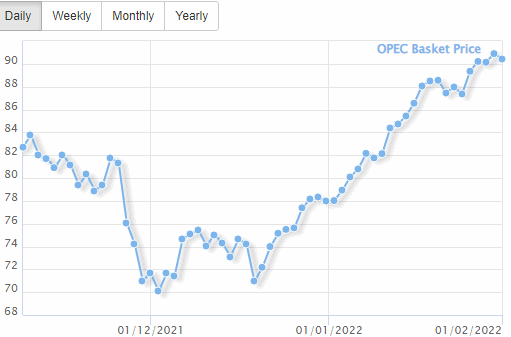The monthly OPEC+ meeting ended with no significant
change in policy, with members agreeing to maintain the status-quo; that means,
the members are collectively adding additional 400,000 bpd in March too.
The group was much more optimistic about the
short-term demand than they were in the last quarter, 2021.
The cartel, however, still think that there will be
a crude oil surplus in 2022, exactly the way they anticipated, but less than
what they dreaded. The reference to this aspect, analysts believe, is to
mitigate the frustration felt by leading consumer nations such as the US,
China, India and Japan.
The pleas by large global consumers have already
fallen on deaf years and they in turn have resorted to releasing the SPRs,
Strategic Petroleum Reserves – with not much luck yet, though.
The crude oil markets long anticipated the mood of
the oil producers and the price of Brent crude oil even crossed the
politically-sensitive $90 a barrel this week.
The price of LNG, liquefied natural gas, has,
meanwhile, risen significantly in light of the conflict between Russia and Ukraine.
It is unthinkable that the price of crude oil will come down when the gas
prices are rising at this rate.
As of 13:25 GMT on Wednesday, the price of WTI,
Brent and LNG stood at $87.68, $88.72 and $5.31 respectively; the price of the
LNG went up by nearly 11%!
Usually, gas prices in Europe rise during this time
of the year in proportion to the falling winter temperatures. Since the days
are relatively warmer with temperatures hitting double digits, the only factor
that pushes the gas prices up appears to be the conflict in Eastern Europe.
If the conflict remains volatiles for a few more
weeks, the stakes could not be higher for Russia too, as it loses vital revenue
from oil and gas.
Since European consumers are already feeling the
pinch in the presence of rising energy prices and Russians feel the same due to
inability to sell the commodities in question as much as they like, political analysts
believe the politicians will find a compromise in the end, in order to avert a
major disaster on their doorstep.







